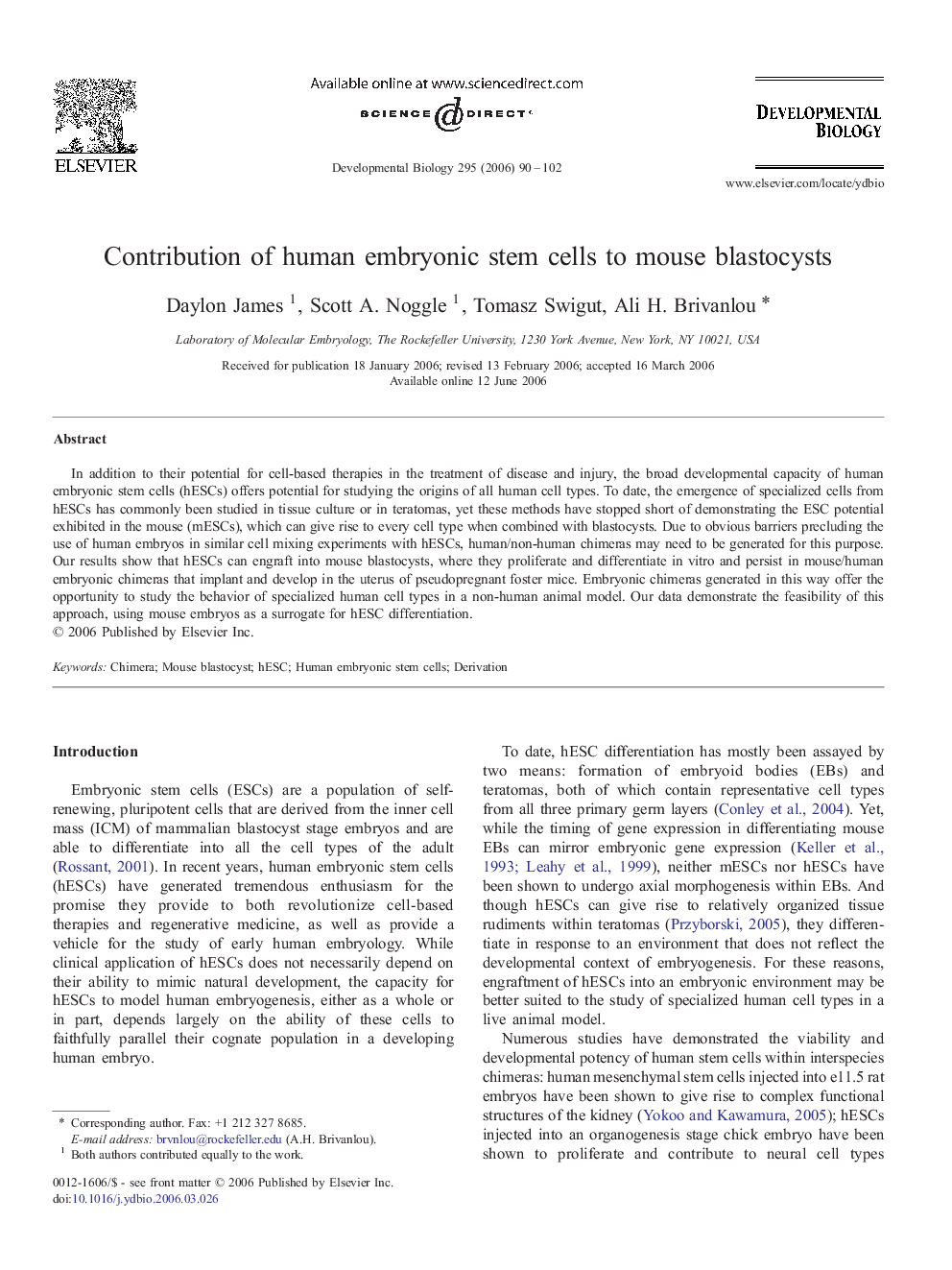| کد مقاله | کد نشریه | سال انتشار | مقاله انگلیسی | نسخه تمام متن |
|---|---|---|---|---|
| 2175885 | 1093857 | 2006 | 13 صفحه PDF | دانلود رایگان |

In addition to their potential for cell-based therapies in the treatment of disease and injury, the broad developmental capacity of human embryonic stem cells (hESCs) offers potential for studying the origins of all human cell types. To date, the emergence of specialized cells from hESCs has commonly been studied in tissue culture or in teratomas, yet these methods have stopped short of demonstrating the ESC potential exhibited in the mouse (mESCs), which can give rise to every cell type when combined with blastocysts. Due to obvious barriers precluding the use of human embryos in similar cell mixing experiments with hESCs, human/non-human chimeras may need to be generated for this purpose. Our results show that hESCs can engraft into mouse blastocysts, where they proliferate and differentiate in vitro and persist in mouse/human embryonic chimeras that implant and develop in the uterus of pseudopregnant foster mice. Embryonic chimeras generated in this way offer the opportunity to study the behavior of specialized human cell types in a non-human animal model. Our data demonstrate the feasibility of this approach, using mouse embryos as a surrogate for hESC differentiation.
Journal: Developmental Biology - Volume 295, Issue 1, 1 July 2006, Pages 90–102